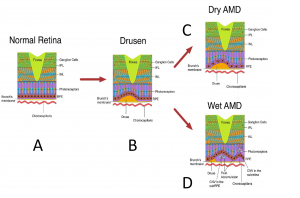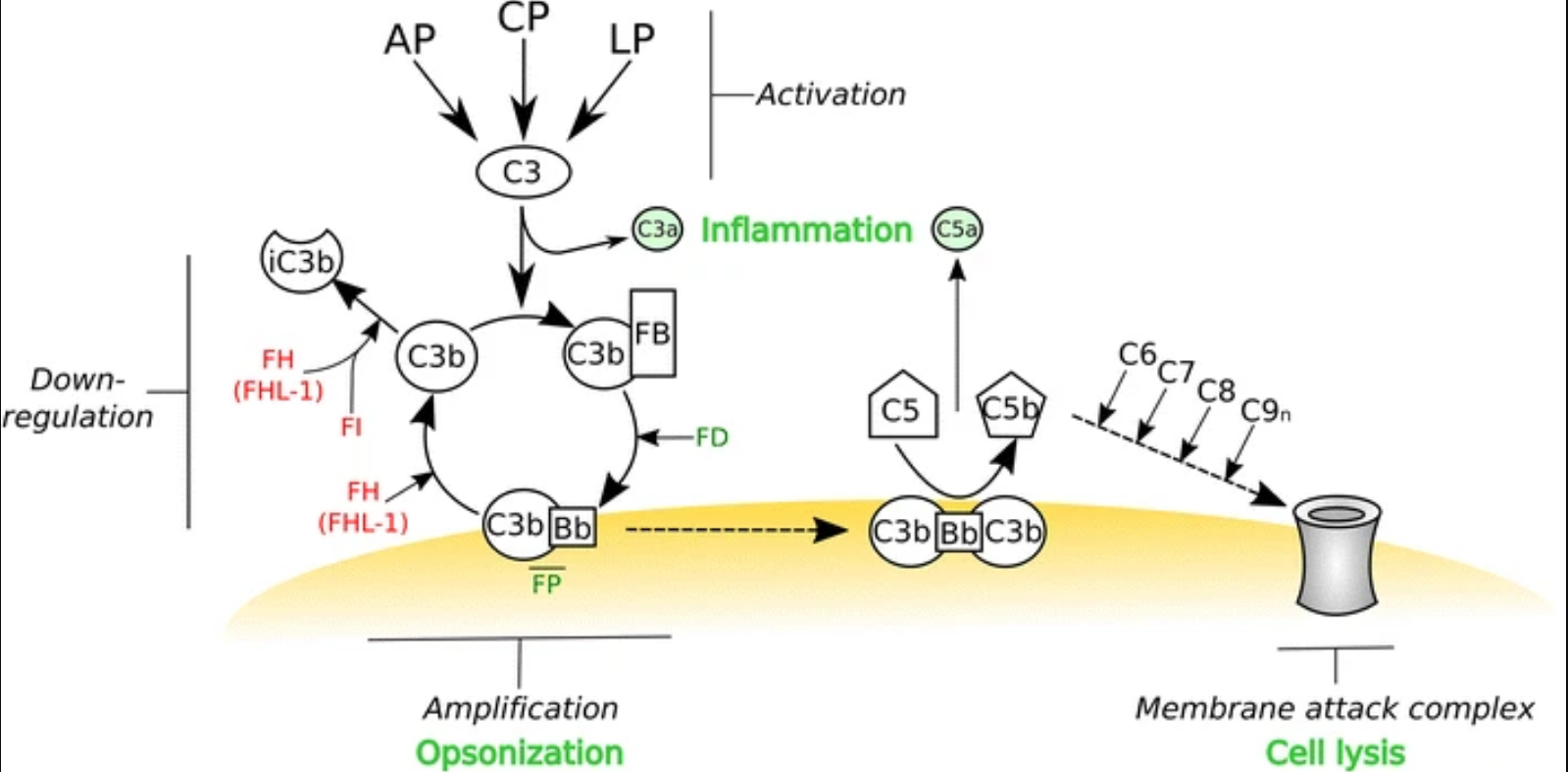Background
Our lab is interested in exploring the mechanisms of Age Related Macular Degeneration (AMD). AMD is one of the leading causes of vision loss, primarily affecting the eldery. Currently, 11 million US citizens are affected by AMD and this number is expected to double by 2050 as a result of an increasingly large eldery population. It is our goal to elucidate the molecular interactions underlying AMD pathogenesis, thereby identifying potential therapeutic targets and possibly establishing potential treatments.
Age-Related Macular Degeneration (AMD)
Genome-wide association studies (GWAS) have identified several genetic mutations highly associated with the development of AMD. We primarily focus on variants in the CFH and ARMS2-HTRA1 genetic loci, which are strongly associated with disease progression. We employ retinal cell lines and mouse models and leverage the latest techniques in molecular biology to investigate the roles of these proteins in AMD pathogenesis.
The HtrA1-ARMS2 Gene Locus
Genetic variants in the ARMS2-HTRA1 locus are strongly associated with AMD progression. However, the mechanism underlying this robust association remains unclear due to high linkage disequilibrium among risk variants. Our previous studies have shown that AMD-risk variants increase the expression of HTRA1, a serine protease that cleaves many proteins in the extracellular matrix (ECM). Current projects focus on identifying novel ECM substrates of HTRA1 proteolytic cleavage and assessing the therapeutic potential of inhibiting HTRA1 protease activity with novel anti-HtrA1 antibodies.
CFH
Complement Factor H (CFH) is a critical regulator of the alternative pathway (AP) of innate immunity, the portion of the immune system not dependent on antibodies. CFH prevents the cascade leading to AP activation by binding to C3 convertase. However, the AMD-risk associated rs1061170 variant weakens the binding of CFH to C3, thereby elevating AP activation and promoting chronic inflammation. Our current project focuses on the interactions of CFH with oxidized phospholipids and cigarette smoke, both of which are also major risk factors of AMD.
